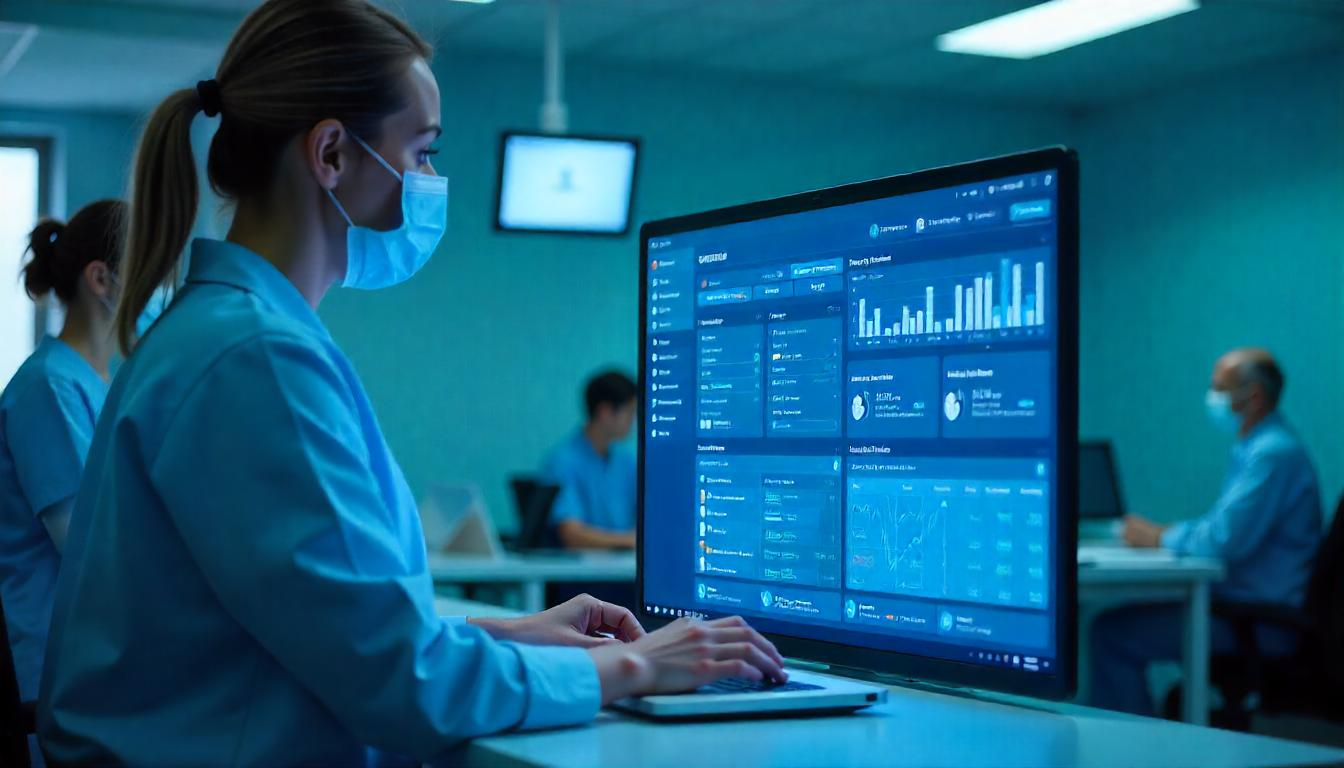A Complete Guide to Hospital Management Systems: How They Transform Healthcare

Strong 8k brings an ultra-HD IPTV experience to your living room and your pocket.
In today's fast-evolving healthcare landscape, hospitals are not just about treating patients — they're about managing hundreds of interconnected processes with precision. This is where a Hospital Management System (HMS) or hospital management software steps in. But what exactly is an HMS, and why is it considered the backbone of modern medical institutions?
Whether you’re a hospital administrator, a healthcare startup founder, or just someone curious about how hospitals work behind the scenes, this guide will walk you through what an HMS is, how it works, and how it actively improves efficiency and the patient experience.
What Is a Hospital Management System?
A Hospital Management System is an integrated software platform designed to manage all the key operations of a hospital—administration, medical services, billing, patient records, scheduling, pharmacy, and inventory, among others.
Imagine trying to run a hospital with paper files, handwritten prescriptions, and delayed reports. Now, picture a streamlined dashboard where every department updates in real-time and all records are digital, secure, and accessible. That’s HMS in action.
Why It Matters More Than Ever
Healthcare is no longer about just reacting to illness. It’s about prevention, data-driven decisions, and real-time care. A hospital management software allows organizations to meet rising patient expectations, cut operational delays, and focus more on care than paperwork.
Step-by-Step: What a Hospital Management System Can Do
Let’s break it down into real, actionable functionalities:
1. Patient Registration & Appointment Scheduling
HMS allows online and offline patient registration, appointment booking with specialists, and automated reminders. Patients don’t need to wait in queues, and front-desk chaos is reduced significantly.
2. Electronic Medical Records (EMR)
All patient data — history, test results, diagnosis — is stored digitally and securely. Doctors can access the data anytime, from anywhere, ensuring better treatment continuity and accuracy.
3. Billing & Invoicing
The system automatically generates bills based on treatments, medications, room charges, and more. It reduces manual errors and saves time for both patients and staff.
4. Pharmacy & Inventory
An integrated inventory module tracks drug stocks, expiry dates, and reorder levels. This prevents shortages and ensures patient safety with up-to-date medications.
5. Lab Management
Lab technicians receive test requests, enter results, and send reports back to the respective departments — all through the system. No more lost reports or miscommunications.
6. Insurance & Claims
Managing insurance is simplified through direct integration with insurers. Claims can be generated, tracked, and settled efficiently, with minimal back-and-forth.
7. HR & Payroll
Staff attendance, shift planning, payroll, and performance tracking are managed from one platform, creating a smooth workflow for HR departments.
8. Administrative Reporting
Want to see daily admissions, department-wise revenue, or doctor performance metrics? The HMS offers automated reports with customizable dashboards.
Real-World Impact: What Happens When You Use HMS?
Here’s what hospitals can expect:
- Faster decision-making with real-time data
- Lower operational costs due to reduced paperwork
- Improved patient satisfaction thanks to timely services
- Higher staff productivity with streamlined processes
- Regulatory compliance through automatic record-keeping
Build a Future-Proof Healthcare Facility
Choosing the right hospital management software is not just a tech decision — it’s a strategic one. Hospitals that adopt HMS early position themselves for scalable growth and better patient outcomes.
Before investing in any system, evaluate:
Does it match your hospital size and complexity?
Can it be customized to your specialty (e.g., dental, ophthalmology, IVF)?
Is there proper support and data security?
Can it grow with your organization?
Conclusion
The hospital of tomorrow will not rely on paperwork, manual tracking, or disconnected systems. It will be data-driven, efficient, and patient-centric — and all of that begins with a solid Hospital Management System.
Whether you're running a small clinic or a multi-specialty hospital, investing in the right HMS is no longer optional — it’s essential. Make sure your facility is equipped not just for today’s demands, but for tomorrow’s expectations.
Note: IndiBlogHub features both user-submitted and editorial content. We do not verify third-party contributions. Read our Disclaimer and Privacy Policyfor details.


